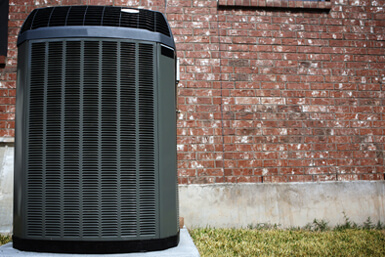What to Look for When Buying a New HVAC System
Americans rely on our HVAC products to maintain our homes in a livable condition year-round. A savvy shopper can choose from countless amazing products to keep their families cool in the summer and warm in the winter. Unfortunately, regulating the indoor air temperature in your home doesn't come cheap. It takes a lot of energy, generally in the form of electricity, natural gas, or oil, to power your HVAC appliances, especially if you live in a part of the country that experiences extreme heat in the summer, cold in the winter, or both.

In fact, according to the Department of Energy, nearly half of the energy consumption in a typical American household is devoted to heating and cooling. That means significant money out of your pocket every month to pay your utility bills. The good news, however, is that there are heaters and air conditions on the market that are more efficient than ever, saving you money and reducing your footprint on the environment. It's very possible to heat and cool your home without breaking the bank – you just need to know what to look for.
Cooling Systems
When shopping for a new home cooling device, you have the option of central air or a room air conditioner, both of which offer pros and cons and a variety of energy-efficient models to choose from.
Central Air
- Increased comfort and reduced humidity: Central air conditioning helps keep your home cool and reduces humidity levels.
- Cleaner air: As your central air conditioning system draws air out of various rooms in the house through return air ducts, it is pulled through a filter, which removes airborne particles such as dust and lint. Sophisticated filters may remove microscopic pollutants, as well. The filtered air is then routed to air supply ductwork that carries it back to rooms.
- Quieter operation: Because the compressor bearing unit is located outside the home, the indoor noise level from its operation is much lower than that of a free-standing air conditioning unit.
- More efficient: Central air units tend to be more efficient relatively speaking to window units, although the disadvantage is you end up paying to cool the entire house whether you're using every room or not.
Window Units
- Lower upfront cost: Window unity are much less expensive to purchase and install.
- Potential energy savings: If you only need to cool one or two rooms in your house, you can save energy by reducing the amount of cubic feet in play.
Choosing the Right Home Cooling System
- Pick the right size. With either type of air conditioner, make sure you pick out the appropriate size to fit your needs, or you will lose efficiency because if the unit is too small, it will overwork itself to cool the space, or alternatively if it's too big, it will cool the air too quickly and not run through its entire cycle.
- Check the energy efficiency ratio. Regardless of whether you go with central air or a window model, check out the EER (energy efficiency ratio) of your unit when you go shopping – the higher the number, the better. Window units may also have a CEER, or combined energy efficiency ratio, which measures how much power it draws both when it is running and when it rests in standby. Central air units may be rated with a seasonal energy efficiency ratio, or SEER, which takes into account the entire season that the appliance is likely to be in use.
- Look for an ENERGY STAR®label, which is applied to models that meet certain standards, including being at least 10 percent more efficient than the government minimum, and can help guide you in the direction of the most energy-efficient HVAC system. A good place to start looking for the model that's right for you is on the ENERGY STAR® product guide for room air conditioners and central air units.
Heating Systems
ENERGY STAR® and AFUE
You can keep your home warm and comfortable without spending a fortune on heating bills with a new high-efficiency ENERGY STAR® qualified furnace. The efficiency of a furnace can be determined by its AFUE--or Annual Fuel Utilization Efficiency. The minimum efficiency level for furnaces currently available is 80% AFUE, which means that for every dollar you spend heating your home, 80 cents are actually applied to the generation of warmth. The maximum possible rating would theoretically be 100% AFUE but manufacturers have not achieved such a breakthrough for gas-fueled furnaces, although it is possible to find electric heaters that boast perfect efficiency.
Many furnaces found in older homes supply AFUE ratings in the 60% range, so upgrading to the modern bare minimum of 80% AFUE would already be a major improvement. However, for enhanced energy efficiency and more savings in the long run, homeowners might wish to consider appliances with a 95% AFUE rating or higher. The colder the climate you live in, the greater benefits you will see from boosting your efficiency levels as high as you possibly can. The ENERGY STAR® website maintains a list of top-performing furnaces with models available as high as 98.4% AFUE and boilers up to 96% AFUE.
Keep Your Heating System in Shape
Keep in mind that AFUE doesn't tell the whole story when it comes to efficiency. You'll need to do your part to make sure your heater stays efficient.
- Maintain your furnace. Change your filter regularly (for forced-air furnaces) and otherwise keep your appliances maintained in peak condition so you don't experience any degradation in performance.
- Even if the heater offers an impressive 98% AFUE at the source, you are still likely to lose some of that heat as it travels through your ducts and pipes. That's why whole-home solutions that include sufficient insulation are critical in wringing out every bit of warmth from your dollar as you possibly can.
Questions to Ask When Buying a New HVAC System
Few people actually look forward to buying a new HVAC system, because it means shelling out a large chunk of cash. However, if you are diligent in your shopping, you can find a model that can save you money in the long run by bringing your monthly bills down to a manageable level. Armed with your new knowledge on energy efficiency, you can head out to the store with these questions to ask when buying a new HVAC system:
- How does its efficiency rating (be it EER, CEER, SEER, or AFUE, depending on what unit you're in the market for) compare to other options on the market?
- Does the model come with an ENERGY STAR® label?
- What are the maintenance requirements for the unit?
- Is the furnace or air conditioner the right size for my house?
- What else do I need to know to get the most efficiency from the appliance?
If you do your homework in advance, you can ensure that you come home with a new HVAC system that cuts down on your bills and meets the heating and cooling needs of your family.
 CANADA
CANADA USA
USA









